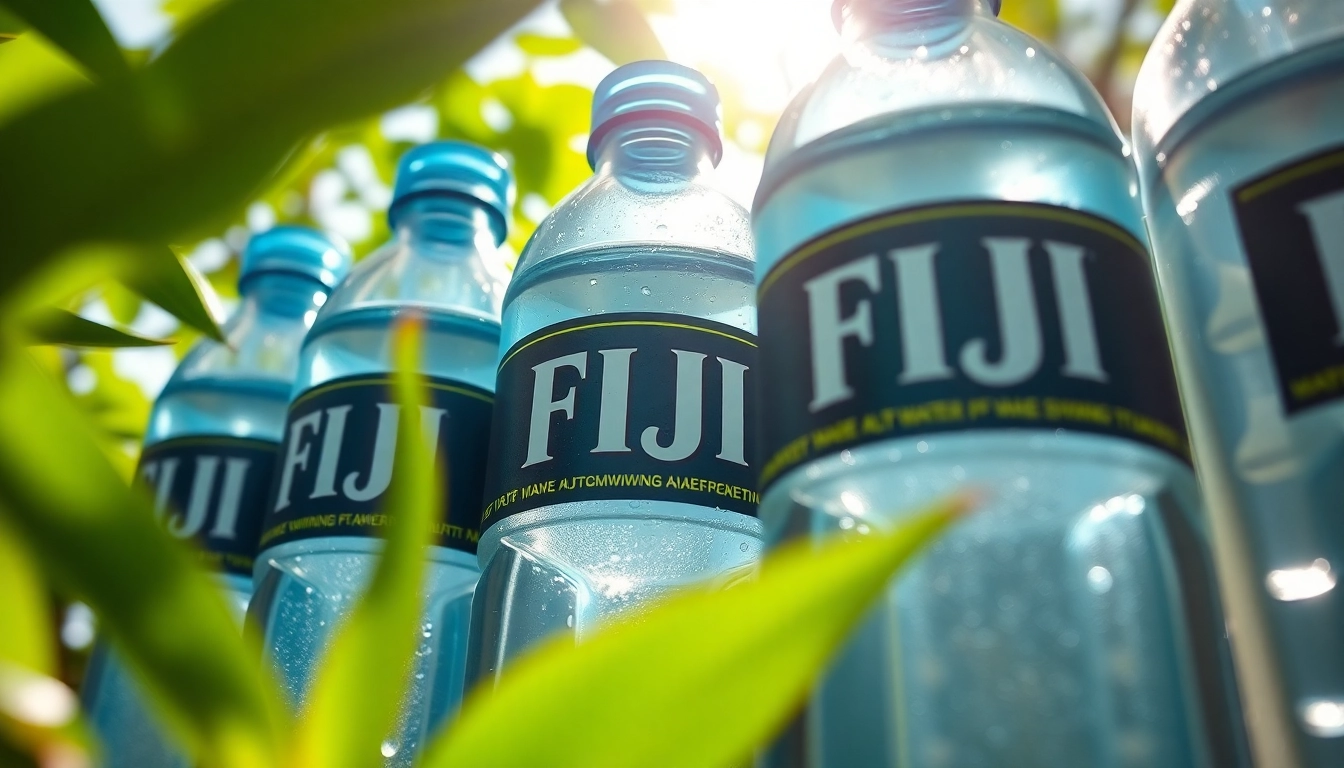Overview of the Fiji Water Recall
In May 2024, a major development in the bottled water industry caught the attention of consumers nationwide. The U.S. Food and Drug Administration (FDA) announced the recall of 78,533 cases—equivalent to approximately 1.9 million bottles—of Fiji Natural Artesian Water. This recall was classified as a Class III recall, which indicates that the potential for harm was low, but the concern surrounding possible contamination prompted swift action from the manufacturer, Natural Waters of Viti Limited.
What Was Recalled?
The recall specifically encompassed 500 mL bottles of Fiji Natural Artesian Water, packaged in cases of 24. These bottles were sold primarily through online platforms, including the ubiquitous Amazon.com, raising concerns for consumers who had made purchases in this manner. This voluntary recall was initiated after testing revealed the presence of substances that could pose health risks, ultimately leading to significant public worry.
Reasons Behind the Recall
The primary reasons behind the recall included the identification of elevated levels of manganese, along with the potential presence of harmful bacteria. Manganese is a mineral that, while essential in small amounts, can be toxic in excessive quantities. According to the Minnesota Department of Health, too much manganese can lead to serious health complications, especially in children. Additionally, three genera of bacteria were detected, which further compounded the urgency for the recall due to potential health risks associated with consumption.
Timeline of Events
The FDA announced the recall on May 23, 2024. Following this, a wave of media coverage ensued, illuminating the issue across various platforms, from health websites to mainstream news outlets. The recall’s announcement marks a critical moment for Fiji Water as it navigates increased scrutiny from consumers and regulators alike.
Health Implications of Contaminated Fiji Water
Understanding the potential health risks associated with contaminated bottled water is crucial for consumers, as it highlights the broader implications of corporate responsibility in food safety.
Understanding Manganese and Bacterial Risks
Manganese is needed in trace amounts for various bodily functions, including bone formation and immune response. However, prolonged exposure to high levels can result in toxicity, particularly affecting the nervous system. In children, exposure can lead to developmental issues. The bacteria associated with the recalled water can cause gastrointestinal illnesses and other severe health issues. Knowing these risks is essential for consumers who may have purchased affected products.
Symptoms of Contamination
Symptoms resulting from exposure to contaminated water can include nausea, vomiting, diarrhea, stomach cramps, and in severe cases, neurological symptoms such as headaches and disorientation. The public should be vigilant regarding any uncharacteristic symptoms post-consumption of potentially affected products.
Expert Advice on Safety
Health experts advise consumers to stay informed about food and beverage recalls and to regularly check FDA announcements. Anyone experiencing symptoms after consuming recalled products should seek medical attention. Furthermore, practicing caution and awareness when purchasing bottled water can significantly reduce health risks.
How to Identify Recalled Fiji Water Bottles
Being able to identify affected products is crucial for consumer safety, especially in light of a significant recall.
Label Check: What to Look For
Consumers should carefully inspect labels for specific batch numbers or codes indicated in recall announcements. For the Fiji recall, the affected bottles primarily included those sold online, and therefore it is essential to note the purchase source and any involved packaging.
Distribution Channels Affected
The recall primarily affected bottles sold via online retailers such as Amazon. Consumers who purchased Fiji Water bottles in physical stores should still exercise caution and check recall announcements to ensure they are aware of all affected products.
Contact Information for Refunds
To facilitate the recall process, consumers can reach out directly to Natural Waters of Viti Limited for refund information. The company representatives should be able to guide customers on how to return affected products and receive proper recompense.
Next Steps for Consumers
The recall raises crucial questions about consumer rights and safety, as well as the steps individuals need to take in response.
Immediate Actions to Take
If you have purchased affected Fiji Water bottles, the first step is to stop consuming them immediately and check the batch numbers against the recall announcements to determine if your purchase falls within the affected range. For any concerns about health symptoms, consult healthcare professionals.
Disposal Guidelines for Recalled Bottles
Consumers are advised to safely dispose of any affected bottles to prevent accidental consumption. This can include discarding bottles in a secure waste container where they cannot be accessed by children or pets. Furthermore, check local regulations for disposal guidelines for recalled food products to ensure compliance with municipal waste policies.
Staying Informed on Future Recalls
Signing up for notifications from the FDA or other health organizations can help consumers stay updated on recalls and safety alerts. Social media platforms and news outlets also provide timely information regarding food recalls, allowing consumers to make informed decisions.
The Road Ahead for Fiji Water
The impact of a recall extends far beyond immediate health concerns, affecting brand reputation and consumer loyalty.
Brand Impact and Consumer Trust
Fiji Water, known for its pristine source and unique marketing image, faces a challenging road ahead post-recall. Consumer trust has undoubtedly been shaken, as many will question whether consuming Fiji Water is safe moving forward. The company must implement rigorous quality controls and transparency to regain consumer confidence.
Regulatory Response to the Recall
The regulatory landscape surrounding bottled water has been under scrutiny, prompting calls for heightened safety standards. The FDA’s response to the recall indicates the agency’s commitment to consumer protection, but it also highlights the necessity for companies to engage in proactive quality management practices to avoid future incidents.
Future Safety Measures Implemented
To address the concerns raised by this recent recall, Fiji Water must introduce enhanced testing processes for contaminants and ensure stricter oversight of its bottling practices. Increased transparency about sourcing and production can further help in restoring trust among consumers. Additionally, establishing a crisis management plan would prepare the brand for addressing potential issues that may arise, ensuring prompt and effective communication in the face of future recalls.



